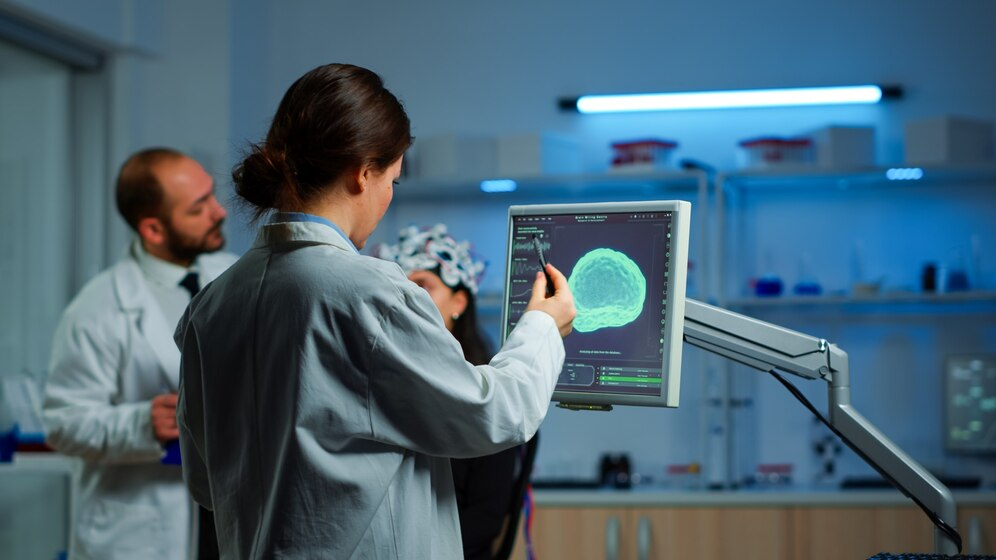
Neurosurgery has evolved significantly over the years. There have been groundbreaking advancements in the sector that have transformed the way brain and spine conditions are treated. With the integration of modern medical technology, procedures are becoming more precise, less invasive, and more effective. These innovations are shaping the future of neurological care, offering better outcomes and faster recovery for patients worldwide.
The Evolution of Neurosurgery
Historically, neurosurgical procedures were complex and carried significant risks due to the delicate nature of the brain and spine. However, advancements in medical technology have introduced techniques that improve accuracy and reduce complications. Today, those seeking neurosurgery in Delhi can access sophisticated treatments that utilise robotic assistance, real-time imaging, and minimally invasive methods. These developments are improving patient safety and helping surgeons achieve greater efficiency in performing critical procedures.
Key Innovations Shaping Neurosurgery
The key innovations that are shaping neurosurgery are:
1. Robotic-Assisted Procedures
Robotic-assisted surgery has transformed neurosurgical operations by improving precision and reducing the margin of error. These systems provide surgeons with enhanced visualisation and control, allowing them to perform intricate procedures more accurately. Robotic technology is widely used in spinal surgeries, tumour removals, and other complex neurological procedures, improving patient safety and outcomes. As these systems become more sophisticated, they are expected to play an even more significant role in neurosurgical advancements.
2. Minimally Invasive Techniques
Minimally invasive neurosurgery has revolutionised patient recovery by reducing surgical trauma. Small incisions, combined with high-definition imaging and precision instruments, enable surgeons to access affected areas with minimal disruption. This approach is commonly used for treating conditions such as brain tumours, spinal disc herniation, and aneurysms. Patients benefit from shorter hospital stays, reduced pain, and quicker recovery. These techniques significantly lower the risk of post-surgical complications, making them a preferred choice for many neurosurgeons.
3. Advanced Imaging and Navigation Systems
Modern neurosurgery relies heavily on advanced imaging technologies such as intraoperative MRI and CT scans. These tools provide real-time feedback, enabling surgeons to make informed decisions during procedures. Computer-assisted navigation systems enhance accuracy, ensuring precise targeting of affected areas while avoiding critical structures. With continuous improvements in imaging technology, neurosurgeons can now perform highly intricate procedures with increased confidence and better patient outcomes.
4. 3D Printing for Customised Implants
Introducing 3D printing in neurosurgery has paved the way for personalised treatment solutions. Custom-made implants explicitly designed for a patient’s anatomy improve the success rate of cranial and spinal reconstruction surgeries. This technology helps surgeons achieve better alignment, enhances structural support, and reduces post-surgical complications. The ability to create patient-specific implants has proven invaluable in cases where standard implants may not be suitable, further demonstrating the potential of 3D printing in neurosurgical care.
5. Neurostimulation and Brain-Machine Interfaces
Neurostimulation therapies and brain-machine interfaces have opened new possibilities for treating neurological disorders. Techniques such as deep brain stimulation (DBS) are widely used for managing conditions like Parkinson’s disease, epilepsy, and chronic pain. Research in brain-machine interfaces is advancing, offering hope for individuals with spinal cord injuries and motor impairments. By directly interfacing with the nervous system, these technologies are enabling new therapeutic approaches that were previously considered unattainable.
Emerging Trends in Neurosurgical Treatment
Beyond the established innovations, newer trends are emerging that are set to revolutionise neurosurgical care further. One of these is the application of artificial intelligence (AI) in predictive diagnostics, assisting doctors in detecting neurological disorders at earlier stages. AI-powered systems are being developed to analyse brain scans, detect abnormalities, and recommend treatment approaches based on vast datasets.
Similarly, augmented reality (AR) and virtual reality (VR) are being explored as tools for surgical planning and intraoperative guidance. These technologies allow neurosurgeons to visualise complex cases in a three-dimensional space, enhancing their ability to perform delicate operations with increased precision.
Gene therapy and regenerative medicine are also on the horizon, promising new avenues for restoring damaged brain and spinal tissues. Advances in stem cell research are shedding light on potential treatments that could enable neural regeneration, offering hope to patients with neurodegenerative disorders and traumatic brain injuries.
The Future of Neurosurgery
The future of neurosurgery in Delhi and around the world is being shaped by technological advancements, innovative research, and collaborative medical expertise. With continuous improvements in robotic assistance, AI integration, and personalised medicine, the scope of neurosurgical interventions is expanding. These innovations are not only making procedures safer but also ensuring better long-term outcomes for patients.
Medical institutions like BLK Max Super Speciality Hospital are rapidly adopting these advancements to provide modern care. As technology evolves, the role of neurosurgeons will continue to shift towards more precision-driven and patient-centric approaches, redefining what is possible in brain and spine surgery. Integrating AI-driven diagnostics and robotic systems will likely become standard practice, ensuring that neurosurgical care continues to push the boundaries of medical advancement.
Know more about : Most Advanced Robotic Spine Surgery System of India is Now Available at BLK-Max Hospital
Conclusion
Neurosurgery continues to advance, with advanced technologies making brain and spine surgeries safer and more effective. Patients now have access to innovative treatments that were once considered impossible. With medical institutions integrating these advancements, individuals seeking neurosurgery in Delhi can benefit from world-class expertise and modern procedures. The evolution of neurosurgical techniques is set to redefine neurological healthcare, providing improved outcomes and better quality of life for patients worldwide.






